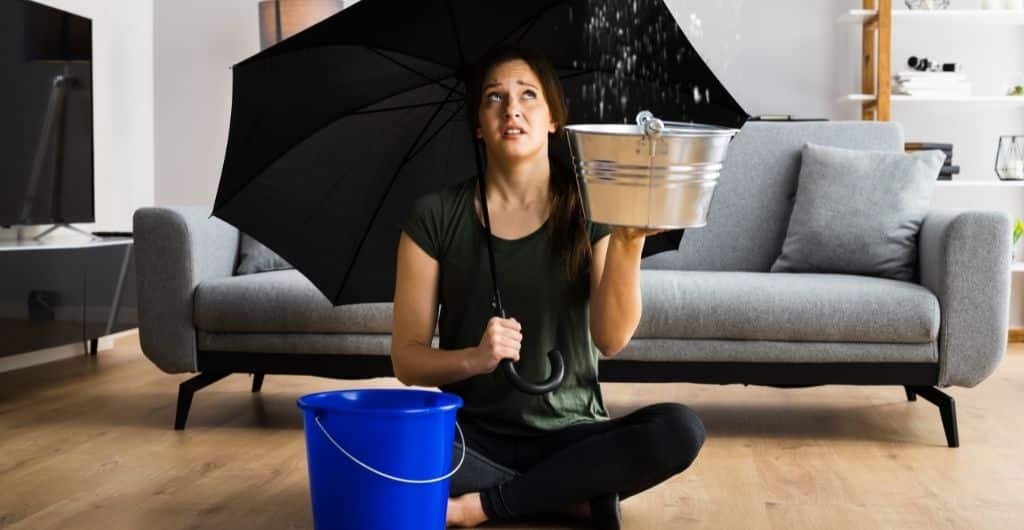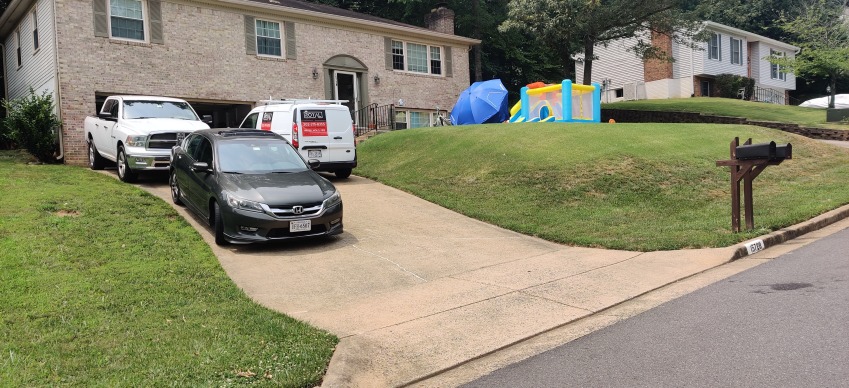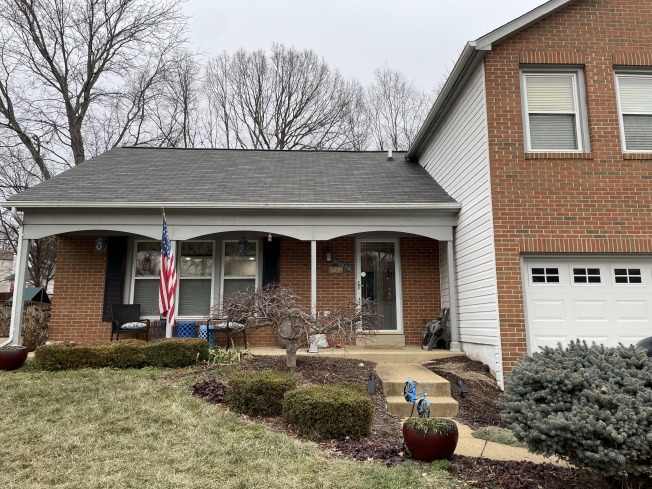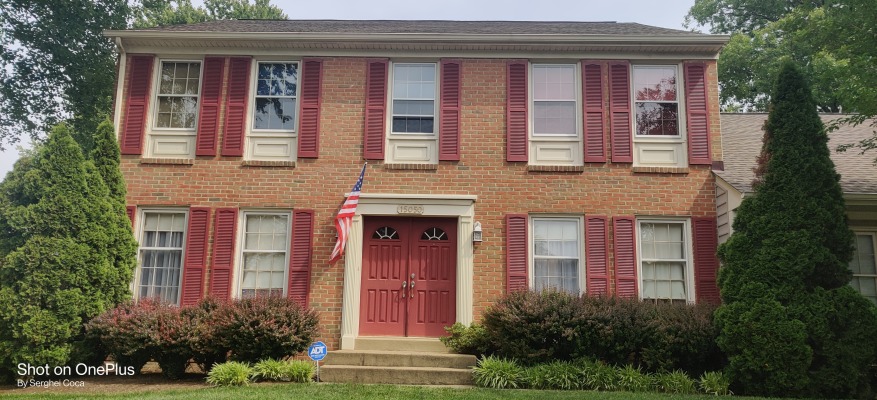Water damage strikes when you least expect it. One minute everything’s fine, and the next you’re ankle-deep in water from a burst pipe or dealing with a soggy ceiling from an upstairs leak. If you’re facing water damage in your Northern Virginia, Maryland, or D.C. home, you’re probably wondering about the cost to restore water damage and what factors will impact your final bill.
Water damage restoration cost vary significantly based on several critical factors. Damage severity and the overall project cost are major influences on water damage restoration cost, as the extent of the damage directly affects the scope and price of repairs. Every restoration company will assess your situation differently, but understanding the basics helps you know what questions to ask and what prices are reasonable. Seeking professional help is essential for an accurate assessment and effective restoration, ensuring the job is done safely and thoroughly. Let’s break down what you can expect to pay in 2025 and help you understand the cost of water damage restoration for your specific situation.
What’s the National Average for Water Damage Restoration in 2025?
According to recent data from Angi, water damage restoration costs $3,836 on average but typically ranges from $1,382-$6,344, depending on the extent of the damage. The repair costs range widely for different types of water damage, such as flooded laundry rooms or water-damaged flooring, reflecting the variability in the type and extent of repairs needed. Most homeowners find themselves spending somewhere in the middle of this range, though costs can dip as low as $450 for minor issues or soar up to $16,000 for severe flooding situations, especially when severe damage requires major restoration efforts and comprehensive cleanup.
When you’re looking at water damage restoration cost per square foot, you’ll typically spend between $3 and $7.50 per square foot, though this varies based on several factors we’ll explore below. Certain factors, such as the extent of water intrusion or the need for specialized equipment, can increase costs.
Water Categories: Why the Type of Water Matters
Not all water damage is created equal. The category of water flooding your property dramatically impacts your restoration bill. Here’s what each category means for your wallet:
Category 1: Clean Water ($3.50 per square foot)
This is water from broken supply lines, overflowing sinks (without contaminants), or rainwater that hasn’t mixed with ground contaminants. It’s the least expensive to clean up since it doesn’t pose immediate health risks. A 500-square-foot basement with clean water damage might cost around $1,750 for basic extraction and drying.
Category 2: Gray Water ($5.25 per square foot)
Gray water contains some level of contamination. Think washing machine overflow, dishwasher leaks, or toilet overflow with urine but no feces. This water requires more extensive cleaning protocols and protective equipment, pushing costs higher. That same 500-square-foot space would run about $2,625 for gray water cleanup.
Category 3: Black Water ($7.50 per square foot)
This is the scenario nobody wants. Black water includes sewage backups, flooding from rivers or streams, and any water that’s been standing long enough to support bacterial growth. Contaminated floodwater can cause health problems and requires more extensive clean-up, according to the U.S. Environmental Protection Agency. For our 500-square-foot example, you’re looking at $3,750 just for extraction and sanitization, and that’s before any repairs.
Breaking Down Restoration Costs by Damage Location
Water doesn’t discriminate. It can damage virtually any part of your home. Here’s what Royal Restoration typically sees in terms of repair costs for specific areas. The areas affected by water damage and the restoration process required for each can significantly influence overall costs, as different affected areas may need unique assessment, drying, mold remediation, and repair steps.
Roof Repairs
The national average cost to repair a roof is $1,100, though water-damaged roofs can range from $400 to $2,000. Ice dams, missing shingles, and damaged flashing are common culprits in the DMV area’s variable climate. Flat roofs are particularly susceptible to pooling water, which can increase the risk of water damage and lead to higher repair costs.
Ceiling Restoration
Brown spots spreading across your ceiling? A sagging ceiling is another common indicator of water damage that may require immediate attention. Depending on the damage, repairing a ceiling costs $450 to $1,600. The extent of saturation and whether structural components are affected will determine your final cost.
Drywall Replacement
Wet drywall is like a sponge. Once saturated, it usually needs replacement. Replacing drywall is a key step in water damage restoration, involving removal of damaged sections and installing new panels to restore the area. Budget between $300 and $850 for drywall repairs, depending on the affected area size.
Flooring Damage
Your flooring type significantly impacts restoration costs:
Hardwood floors: Can sometimes be saved if caught quickly, costing $200-$3,000 to restore. However, if the water damage is severe, hardwood flooring may need to be replaced, with costs typically ranging from $6 to $12 per square foot for materials and installation.
Tile floors: Most resilient option, often just needs cleaning and grout repair
Carpet: Typically needs replacement if soaked, especially the padding underneath
Laminate/vinyl: Usually requires complete replacement as water gets trapped underneath
Bathroom Fixtures
A 120-square-foot bathroom can cost up to $3,000 to clean and repair. Individual fixture repairs include:
Toilet repairs: $140-$400
Leaky pipes: $150-$350
Bathtub and shower: $200-$800
Drain repairs: Around $200
Basement Water Damage
Basements face unique challenges. A basement with an inch of clean water from a burst pipe might cost $500 to $1,500 to fix, while two feet of water from sewage backup costs $2,800 or more. Unfinished basements often require structural repairs and waterproofing, as water damage can compromise the structural integrity of the foundation and other building materials.
Cost of Mold Remediation
Here’s something many homeowners don’t realize: Mold growth can begin quickly after water damage. Depending on the surface, material, and water or moisture levels, fungal growth can begin within 24 to 48 hours. This is why Royal Restoration emphasizes rapid response to water damage calls.
Mold removal costs $2,225 on average, with typical ranges between $1,200 and $3,800. The longer water sits, the higher your mold remediation costs climb. That musty smell? It’s your first warning sign that mold might already be growing behind walls or under flooring.
Water Damage Classes
Beyond water categories, professionals classify damage by how much of your property is affected:
Class 1 ($150-$400): Minor damage affecting part of a single room with minimal absorption into materials. Think small toilet overflow that’s caught immediately.
Class 2 ($500-$1,000): An entire room is affected, including walls up to 12 inches from the floor. This might be a dishwasher malfunction that wasn’t noticed for several hours.
Class 3 ($1,000-$3,000): Water has wicked up walls, saturated insulation, and affected ceiling materials. Often results from upstairs plumbing failures or roof leaks.
Class 4 ($20,000-$100,000+): Severe structural saturation requiring specialized drying equipment and likely extensive reconstruction. Extensive damage in these cases often requires professional services, including water extraction to remove standing water, and the use of air movers to accelerate drying and prevent mold growth. This typically occurs after major flooding events or long-term undetected leaks.
Water Damage Repair Cost in DMV
Living in the DMV area? Your location affects restoration costs. Urban areas like Washington D.C. typically see higher labor rates but more competitive pricing due to numerous restoration companies. Northern Virginia and Maryland suburbs might have slightly lower rates but potentially longer response times during widespread storm events.
Labor costs for restoration professionals range from $70 to $200 per hour, with emergency after-hours service potentially costing double the standard rate. Emergency services and emergency water damage services are often necessary for rapid response to prevent further property damage and ensure safety, but these specialized services typically come at a higher price.
Insurance Coverage for Water Damage Restoration
Navigating insurance coverage is a critical part of managing water damage restoration costs. Most homeowners insurance policies will cover sudden and accidental water damage, such as that caused by burst pipes, malfunctioning appliances, or a leaky roof. However, it’s important to read your policy carefully, as not all types of water damage are included. For instance, damage from flooding, sewage backups, or issues resulting from poor maintenance are often excluded from standard policies. Homeowners should also be aware of deductibles and any claim limits that may apply, as these can affect the amount of reimbursement you receive. Working with a professional water damage restoration company can make the claims process smoother, ensuring that all necessary damage restoration work is properly documented and submitted to your insurance company. This partnership can help maximize your insurance coverage and reduce out-of-pocket expenses for water damage restoration.
Additional Services That Impact Your Total Cost
Sump Pump Installation
For flood-prone properties, a sump pump costs between $50 and $400, but with installation, the average cost is $1,200. It’s an investment that can prevent future water damage, especially in older DMV-area homes with basement water issues.
Emergency Service Fees
Water damage doesn’t follow business hours. Emergency response (nights, weekends, holidays) typically adds 20-30% to standard rates. However, the cost of waiting can be far higher—remember, every hour counts when preventing mold growth and structural damage.
Content Restoration
Your belongings matter too. Professional content cleaning and restoration can save irreplaceable items, but adds to overall costs:
Document drying and restoration: $100-$500 per box
Furniture cleaning: $50-$500 per piece
Electronics restoration: $100-$1,000 per item
Tips to Save on Water Damage Restoration
Nobody wants to pay more than necessary for water damage cleanup. Follow these essential tips to minimize your cost to restore water damage while ensuring your home gets the professional care it needs.
Act Fast: The quicker you address water damage, the lower your overall costs. What starts as a $500 Class 1 cleanup can escalate to a $3,000 Class 3 restoration if left untreated for even 24-48 hours.
Document Everything: Before any cleanup begins, photograph and video all damage. This documentation is crucial for insurance claims and ensures you’re fairly compensated.
Get Multiple Estimates: While time is critical, getting 2-3 estimates from licensed restoration companies can help ensure fair pricing. It’s important to contact reputable water damage restoration companies for accurate assessments and quotes, as their expertise ensures the job is done right. Be wary of estimates significantly below market rates. Proper water damage restoration requires specialized equipment and expertise. Some repair costs, such as those for burst pipes, may be calculated per linear foot, so understanding this can help you compare estimates more effectively.
Work with Insurance: Most homeowners’ insurance covers sudden and accidental water damage (though not gradual damage from lack of maintenance). A professional restoration company like Royal Restoration can work directly with your insurance company, providing detailed documentation and ensuring all covered damages are addressed.
Prevent Future Damage: Consider investing in water detection devices, regular plumbing inspections, and proper maintenance of appliances. Prevention costs far less than restoration.
Preventing Water Damage
Taking proactive steps to prevent water damage is the best way to avoid expensive repairs and protect your home’s value. Regularly inspecting pipes, appliances, and your roof for signs of wear or leaks can help you catch issues before they escalate. Installing water-detecting devices and sump pumps in vulnerable areas, such as basements or crawl spaces, adds an extra layer of protection. If you notice any leaks or water intrusion, address them immediately to prevent further damage and increased repair costs. Additionally, maintaining good ventilation, using dehumidifiers, and promptly repairing any water damage are essential steps to prevent mold growth, which can pose health risks and lead to even higher restoration costs. By staying vigilant and addressing problems early, homeowners can prevent mold growth, minimize water damage, and save money on future repairs.
When to a Restoration Company
Small, clean water spills in easily accessible areas might be DIY-manageable. But you should call a professional restoration company when:
Water is gray or black category
Multiple rooms or floors are affected
You smell mold or see visible growth
Structural materials are saturated
Electrical systems might be compromised
You need documentation for insurance claims
Remember, only licensed professionals can properly categorize water damage, and most insurance companies require professional assessment for claims processing.
Final Thoughts on Water Damage Restoration Costs
Water damage doesn’t wait for convenient timing or perfect finances. While the average water damage restoration cost sits around $3,836, every situation is unique. Your neighbor’s burst pipe story won’t match yours. That small leak behind your washing machine needs a different treatment than storm flooding in your basement. Acting fast makes all the difference between a manageable repair and a financial disaster.
At Royal Restoration, we’ve helped thousands of DMV families through their worst water damage nightmares. We know you’re not just worried about your property; you’re worried about your family’s safety, your cherished belongings, and yes, the impact on your budget. That’s why we don’t just extract water and leave. We provide transparent pricing upfront, work directly with your insurance company to maximize your coverage, and offer payment plans that won’t drain your emergency fund. Because when water invades your home, you need a restoration company that treats you like family, not just another invoice.





